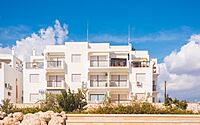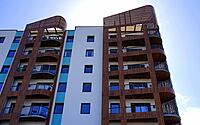How to Choose Between an Apartment and House to Buy
According to real estate website Bankrate, the median price of homes in the US was $410,000 as of June 2023. On the other hand, the price for an average apartment condo in Houston is about $260,000.
The location and type of property matter when choosing a home. Other factors like various amenities, size, and desired lifestyle also can influence your final decision between picking a house or an apartment.
The property market offers lots of options. This article will guide you through multiple aspects that make one property type more lucrative than the other.
Your Property’s Potential Growth
Capital growth is the increase in a property’s value over time. It’s the increase in the value of a property. For instance, if you buy a house for $400,000 and sell it in a few years for $460,000, you would have a 15% capital gain. It means that your property has grown by 15% since you purchased it.
When thinking about capital growth potential, there are several aspects to consider:
- Location. While property investors might not earn as much per unit as those who own homes in more desirable locations, their overall returns may still be higher due to increased occupancy rates and lower vacancy periods due to less time between tenants.
- Condition. People tend to prefer paying more for property that is in good condition, rather than buying something that needs renovation. It’s also particularly important in areas where there are high rates of tenant turnover like university towns.
- Supply/demand dynamics. High supply means that there are lots of options in the area, which can drive prices down. Whereas, if supply is low but the demand for property in that area is high, the prices will go up.
Here are some pros of investing in an apartment for capital growth:
- Apartments generally have lower entry costs than houses.
- Since most apartments like Dubai apartments for sale are located in urban areas with high demand and appreciation rates, they are more likely to increase in value over time.
From a price standpoint, apartments look rather attractive to buyers. However, they also have some drawbacks:
- Apartments usually have a higher supply, which might decrease their price if the demand drops. For example, there may be another similar building being built nearby — it could reduce your chances of selling your property in the future.
- Apartments don’t have backyards like houses do. It means less land value will be added onto them over time.
Although it might seem like apartments have little potential for capital growth, this isn’t always true. For example, apartments in areas with good schools may attract families who want to buy them as homes for their children and as investments. If demand increases for these apartments as more people move into an area, then their prices will rise too.
Income You Can Earn From Your Property
Rental yield is the income you can earn from your property, expressed as a percentage of its value. In other words, it’s your rental income divided by the purchase price of your home. The higher your rental yield, the more profit you make from each dollar invested into buying that asset.
Rental yields vary significantly between apartments and houses because they have different expenses. For instance, there might be more maintenance taxes for apartment buildings than for single-family homes. Here are some pros of apartment rental yield-wise:
- They have better rental yield since there are more affordable and popular among tenants.
- They are easier to manage and require fewer additional costs than houses.
- They have low vacancy rates.
There are some drawbacks to apartments, too:
- There are common property maintenance fees.
- The cost of utilities can eat a fair share of rental income.
Depending on the location, costs can significantly fluctuate. Be sure to do your research before buying an apartment!
What Else You Should Think About
When choosing between an apartment and a house, other aspects should also be considered:
- Financing options. While both types of properties offer similar financing options like mortgages and leaseholds, each type has its unique characteristics depending on what kind of investment strategy suits your needs best. These may vary based on location, too.
- Restrictions. Apartments may have more restrictions than houses, such as body corporate rules and pet policies that can limit what you can do with your property. There is also a far more complicated process for gaining approval to renovate your apartment. In most cases, you will need permission from a government body and neighbors to start doing any work.
There is always a chance that a property will not meet your expectations and be worth less than expected after purchase. This risk can be reduced by doing thorough research on what types of properties are most likely to appreciate over time.
To Wrap Up
You can go with buying an apartment if you want fewer risks and more returns. However, buying a house might still be a better option if you want something more stable for your family. It’s important to keep in mind everything from location to your lifestyle preferences when making this decision so that your new home fits perfectly into your life!
- by Matt Watts









